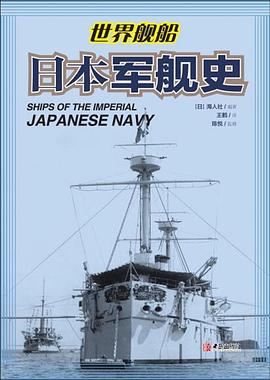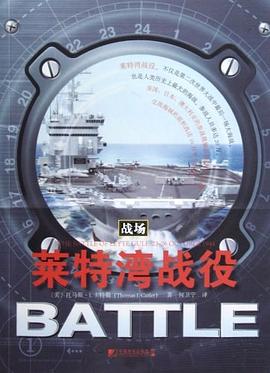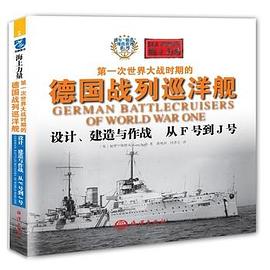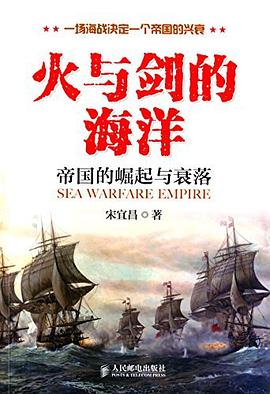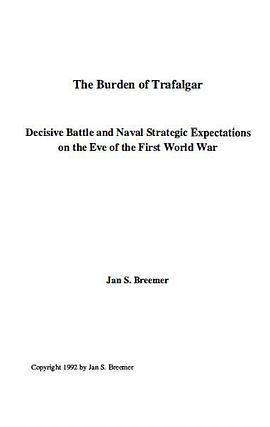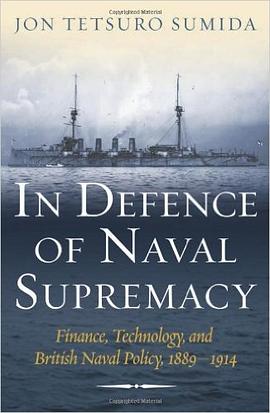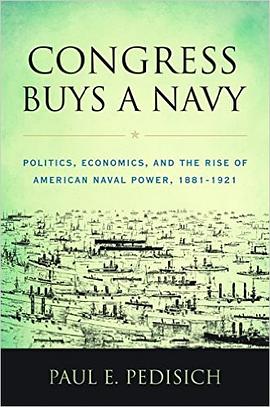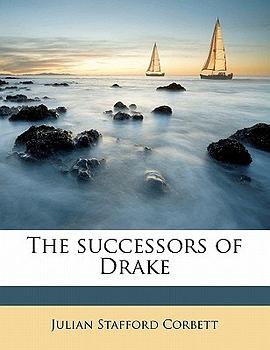

具体描述
David Evans and Mark Peattie's new "Kaigun: Strategy, Tactics, and Technology in the Imperial Japanese Navy, 1887-1941" represents the most comprehensive effort to date to describe the doctrinal changes the IJN went through from its inception to its ruin. The work traces the evolution of Japanese naval thought through three major wars, and clearly describes how the lessons that Japan learned in the Sino-Japanese and Russo-Japanese wars were carried through to the formulation of naval doctrine for the Pacific War. This ultimately worked very much to Japan's disadvantage, since these earlier victories ultimately led her to completely mis-analyze the fundamentally different character and military strength of the United States. Indeed, at the very time that Japan needed to be thinking most creatively about how to fight her more powerful future opponent, her past victories had already laid the foundation for a doctrine which was both rigid and fundamentally flawed.
Nevertheless, the Japanese Navy did produce a number of impressive achievements, both tactically and in terms of technology. The IJN's development of masterful torpedo tactics, the Long Lance torpedo, the formulation of their very powerful carrier aviation arm, and the development of the Yamato-class super battleships were all manifestations of Japan's need to combat a U.S. Navy which was certain to be more numerous, and backed by a larger industrial base than the Japanese could muster. This, in turn, led to a naval doctrine which emphasized quality over quantity, offensive power over defensive capabilities, and front-line combat strength over logistical soundness. The origins of all of these tenets, and their extensions into Japan's tactics and shipbuilding programs, are all clearly explained in Kaigun.
This work fills a major gap in the Western literature concerning Japanese naval doctrine. No other study to date has covered this topic as completely. The authors, who are both Japanese linguists, make extensive usage of Japanese primary sources to support their arguments. The bibliography and back-matter are most impressive. The maps and other illustrations, in my humble opinion (having drawn about 30 of them myself) are excellent. In particular, I draw attention to the diagram of the Japanese Type-93 torpedo, which is the most complete and accurate yet seen in any publication in either Japan or the West. (It ought to be a good diagram -- it took me nearly three weeks to complete it!)
One thing that readers won't find much of is coverage of Japanese wartime tactics. As the authors state, "...because the fortunes of the Japanese Navy turned so disastrously by the end of 1943 and, because it was thereafter forced to desperate improvisations to maintain the struggle against the Allies, few strategies, tactics, and technologies devised in the interwar years had any relevance in the last year and a half of the war.... In any event, comments on specific aspects of Japanese naval strategy, tactics, and technology relating to World War II run throughout the later chapters of [the] work."
The other major gap in "Kaigun" is that it contains only the most superficial coverage of the development of Japanese air doctrine and tactics. This omission was deliberate, in that the Naval Institute Press decided that the book was already too long and requested the authors to remove these chapters. The authors plan to release this material in a second volume, the manuscript for which is tentatively slated for completion in fall of 1998.
In sum, this work is clearly an important contribution to the Western literature on the topic area. For anyone interested in the Imperial Navy, or the development of naval doctrine in general, it is an essential part of their library.
作者简介
目录信息
读后感
评分
评分
评分
评分
用户评价
在我看来,《Kaigun》是一部集知识性、思想性和艺术性于一体的优秀作品。它以一种非常吸引人的方式,将枯燥的历史知识变得生动有趣,将复杂的历史事件梳理得清晰明了。作者的文字驾驭能力极强,能够将严谨的史实与引人入胜的叙事完美结合,让我在阅读中既能学到知识,又能感受到文字的魅力。这本书给我带来的不仅仅是信息的获取,更是一种精神上的洗礼。
评分总而言之,《Kaigun》是一本让我印象深刻的书。作者的叙事风格独树一帜,既有史学大家的严谨,又不乏文学大家的灵动。它让我得以窥见历史的真实面貌,也引发了我对人性、对命运的深刻思考。我特别喜欢书中对细节的描绘,那些看似微不足道的元素,却构成了整个时代的肌理,也让人物形象更加丰满立体。这本书是一次美妙的阅读之旅,我从中收获良多,并且会向所有对历史感兴趣的朋友强烈推荐。
评分这本书我最近才读完,说实话,一开始被《Kaigun》这个书名吸引,脑子里就浮现出各种海上史诗的画面,充满了波涛汹涌的战场、钢铁巨兽的对决,还有那些为了国家荣誉而奋不顾身的战士们。然而,当真正翻开书页,我发现它带给我的远不止这些。作者的文字功底非常扎实,仿佛有一双无形的手,将我拉入了那个年代,让我身临其境地感受那个时代的氛围。从开篇的序章开始,我就被一种浓厚的历史气息所包裹,作者对于时代背景的描绘非常细腻,不仅仅是简单的年代交代,更是对当时社会思潮、政治格局、技术发展等方方面面的梳理,为后续故事的展开奠定了坚实的基础。
评分我对《Kaigun》的喜爱,很大程度上源于它所营造的那种沉浸式体验。作者的文字就像是一扇窗户,让我得以窥见那个久远的时代,感受那些鲜活的人物。我喜欢它在叙事节奏上的把握,张弛有度,引人入胜,让我仿佛置身其中,与书中的人物一同经历着那些激动人心的时刻,也一同承受着那些沉重的悲伤。这种身临其境的感觉,是许多历史读物难以企及的,也正是《Kaigun》最吸引我的地方。
评分《Kaigun》带给我的阅读体验是非常独特的,它不仅仅是一部讲述历史的书,更是一次关于人性、关于选择、关于信仰的探索。作者在叙事上有着非常独到的匠心,时而恢弘大气,时而细腻入微,让我跟随作者的笔触,沉浸在那个波澜壮阔的时代洪流之中。书中的每一个章节都像一颗精心打磨的宝石,闪耀着历史的光芒,也折射出人性的复杂。我尤其欣赏作者在处理历史事件上的客观与深入,没有回避那些艰难和血腥,而是以一种审视的目光去解读,让我在阅读中不断反思。
评分《Kaigun》对我来说,不仅仅是一本书,更是一次精神上的远航。作者的文字具有一种独特的魔力,能够将我从现实的喧嚣中抽离出来,带入到一个充满历史厚重感的海洋世界。我被书中那些充满智慧的对话、那些充满力量的行动所深深吸引,也从中看到了勇气、坚持和信念的力量。这本书让我重新审视了历史,也重新认识了人类的潜能和精神的伟大。
评分《Kaigun》是一部能够触动灵魂的作品。它没有华丽辞藻的堆砌,也没有矫揉造作的情感渲染,但就是这样一种质朴而真挚的文字,却能够穿透人心,引发读者内心深处的共鸣。我常常在阅读的过程中停下来,思考书中人物的遭遇,思考历史的选择,思考自己的人生。作者仿佛是一位智者,通过讲述一段段尘封的往事,向我们传递着关于生命、关于奋斗、关于传承的宝贵启示,让我受益匪浅。
评分阅读《Kaigun》的过程,就像是走过一条铺满历史碎片的蜿蜒小径。我特别喜欢作者在细节上的打磨,每一个场景的描绘都极具画面感,仿佛我能够闻到硝烟的味道,听到炮弹呼啸而过的声音,感受到甲板上木板的摩擦。人物的塑造更是可圈可点,他们不是脸谱化的英雄或反派,而是有血有肉、有情感、有挣扎的普通人。我看到了他们在战场上的英勇无畏,也看到了他们在面对生死抉择时的犹豫和痛苦,这些真实的描绘让我对历史人物有了更深刻的理解和共鸣,也让我对那个时代下的个体命运产生了深深的思考。
评分我必须承认,《Kaigun》在很大程度上颠覆了我之前对某些历史事件的认知。作者的研究功底可见一斑,大量的史料支撑和严谨的论证,让书中每一个观点的提出都显得有理有据,令人信服。它不仅仅是在讲述“发生了什么”,更是在探讨“为什么会发生”,以及“这些事件对后世产生了怎样的影响”。这种深度和广度的结合,让这本书具有了极高的学术价值和思想启发性,我感觉自己在阅读的过程中,不仅仅是满足了好奇心,更是提升了自己对历史的认知水平。
评分《Kaigun》是一本值得反复品读的书。每一次阅读,我都能从中发现新的亮点,获得新的感悟。作者在结构上的安排也十分精巧,前后呼应,层层递进,使得整个故事脉络清晰,逻辑严谨。我尤其欣赏作者在描绘宏大战争场面时,不忘关注个体士兵的内心世界,这种视角上的切换,让冰冷的战争充满了人性的温度,也让那些宏大的历史叙事更加真实可感,更加触动人心。
评分一天两章突击读完,值了!
评分一天两章突击读完,值了!
评分一天两章突击读完,值了!
评分一天两章突击读完,值了!
评分一天两章突击读完,值了!
相关图书
本站所有内容均为互联网搜索引擎提供的公开搜索信息,本站不存储任何数据与内容,任何内容与数据均与本站无关,如有需要请联系相关搜索引擎包括但不限于百度,google,bing,sogou 等
© 2026 book.wenda123.org All Rights Reserved. 图书目录大全 版权所有



